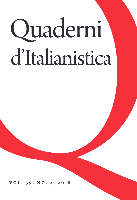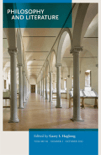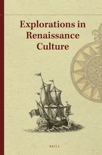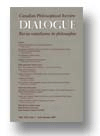
Logos
Scope & Guideline
Exploring the Depths of Cultural Narratives
Introduction
Aims and Scopes
- Philosophical Inquiry:
The journal emphasizes philosophical explorations, particularly those related to modern and contemporary thought, examining the works of significant philosophers such as René Girard and Hegel. - Cultural and Literary Analysis:
It focuses on the analysis of literature and culture, investigating the implications of narrative, representation, and ideology in various contexts. - Interdisciplinary Approaches:
Logos encourages interdisciplinary research, integrating methodologies from sociology, psychoanalysis, and the humanities to approach complex social phenomena. - Violence and Ethics:
A significant area of focus includes the exploration of violence, ethics, and the socio-political implications of these themes, often through the lens of contemporary crises. - Historical Contextualization:
The journal contextualizes philosophical and sociological discussions within historical frameworks, allowing for a deeper understanding of modern issues. - Artistic Research:
There is a notable interest in the relationship between art and knowledge production, exploring how artistic practices can inform and challenge theoretical discourses.
Trending and Emerging
- Post-Truth and Nihilism:
There is a growing emphasis on the concepts of post-truth and nihilism, particularly in relation to contemporary sociopolitical dynamics, reflecting a critical engagement with current global crises. - Mimetic Theory and Violence:
The exploration of René Girard's mimetic theory, particularly in relation to violence and social dynamics, has gained prominence, indicating a sustained interest in understanding human behavior through this lens. - Art and Knowledge Production:
An increasing focus on the intersection of art and knowledge production suggests a trend towards recognizing the role of artistic practices in shaping theoretical discourse and societal understanding. - Digital Society and Posthumanism:
The journal is addressing themes related to the digital society, including the implications of technology and posthumanism, highlighting the importance of these discussions in contemporary scholarly narratives. - Crisis of Knowledge and Epistemology:
Emerging discussions around the crises of knowledge and epistemology reflect a critical examination of how knowledge is produced and disseminated in the current socio-political landscape.
Declining or Waning
- Traditional Ideological Critiques:
Discussions centered around traditional ideological critiques, especially those rooted in Marxist or post-structuralist frameworks, seem to be less frequent, possibly overshadowed by more contemporary issues. - Historical Narratives of the Soviet Era:
Papers specifically analyzing the Soviet era from a historical perspective have decreased, suggesting a shift towards more current sociopolitical issues rather than retrospective analyses. - Psychological Theories of Literature:
There appears to be a waning interest in purely psychological interpretations of literary works, indicating a possible move towards more sociocultural and philosophical analyses. - Abstract Mathematical Philosophy:
Themes focused on the abstract philosophical implications of mathematics have become less prominent, as the journal seems to prioritize more applied and interdisciplinary approaches. - Environmental Philosophy:
While previously discussed, environmental themes have receded, reflecting perhaps a broader academic trend towards urgent socio-political issues over ecological considerations.
Similar Journals

INQUIRY-AN INTERDISCIPLINARY JOURNAL OF PHILOSOPHY
Advancing Interdisciplinary Dialogue in Philosophy and Health PolicyINQUIRY - AN INTERDISCIPLINARY JOURNAL OF PHILOSOPHY, published by Routledge Journals, Taylor & Francis Ltd, stands as a pivotal platform for the exploration of philosophical discourse, particularly at the intersection of philosophy and health policy. With its ISSN 0020-174X and E-ISSN 1502-3923, this journal has been committed to open access since 2014, thereby fostering an inclusive environment for both dissemination and engagement in critical philosophical inquiry. Spanning its rich history from 1958 to 2024, INQUIRY is consistently recognized for its significant contributions, boasting a 2023 ranking of Q1 in Philosophy and Q2 in Health Policy, indicative of its scholarly impact and prestige. Currently, it ranks #69/806 in Arts and Humanities for Philosophy and #170/310 in Medicine for Health Policy, solidifying its role as a vital resource for researchers, professionals, and students committed to advancing knowledge across disciplines. The journal's address in Milton Park, Abingdon, UK, further embeds it within a robust academic community that champions interdisciplinary collaboration and innovation.

Revista de Letras
Advancing Critical Thought in Brazilian AcademiaRevista de Letras is an esteemed academic journal published by Universidade Estadual Paulista (UNESP), dedicated to the fields of Literature and Literary Theory, as well as Philosophy. With its ISSN 0101-3505 and E-ISSN 1981-7886, the journal serves as a significant platform for the dissemination of scholarly research and critical thought, particularly within the Brazilian context and beyond. Operating from Araraquara, SP, Brazil, the journal spans the period from 2004 to 2023, featuring a diverse array of articles aiming to explore various literary and philosophical discourses. Despite its current Q4 ranking in both the Literature and Literary Theory and Philosophy categories, the journal continues to foster a vibrant academic community, promoting rigorous scholarship and intellectual engagement. Researchers, professionals, and students alike are invited to contribute to and engage with the evolving narratives presented in this publication, aiming to enhance understanding and facilitate discussions within these crucial fields.

QUADERNI D ITALIANISTICA
Engaging Minds in the Study of Italian LiteratureQUADERNI D ITALIANISTICA is a distinguished journal dedicated to the field of Italian Studies, focusing on literature and literary theory. Published by QUADERNI D ITALIANISTICA and based in Canada, this journal serves as a platform for scholars, researchers, and students alike to engage with critical analyses and scholarly contributions related to Italian literature. Although it has a Q4 ranking in the 2023 category of Literature and Literary Theory and a Scopus rank of #655 out of 982, the journal plays a pivotal role in fostering discourse within this niche. Since its inception in 2002, the journal has contributed significantly to the study of Italian literature, providing a valuable resource for those looking to explore thematic, historical, and narrative aspects of Italian texts. While access to the journal is not offered freely, its comprehensive coverage until 2018 and again in 2020-2021 ensures a rich archive for critical research endeavors. As such, QUADERNI D ITALIANISTICA remains an essential resource for anyone invested in the intricate landscapes of Italian cultural and literary studies.

PHILOSOPHY AND LITERATURE
Unraveling the Threads of Philosophy through Literature.PHILOSOPHY AND LITERATURE is a distinguished journal published by Johns Hopkins University Press, dedicated to exploring the intricate relationships between philosophical inquiry and literary expression. With an ISSN of 0190-0013 and an E-ISSN of 1086-329X, this journal has established itself as a noteworthy platform for scholars in the fields of literature and literary theory, as well as philosophy, inviting a diverse array of critical perspectives. Since its inception, the journal has evolved, with the most recent converged years extending from 2002 to 2024. It currently holds a Q3 ranking in Literature and Literary Theory and a Q4 in Philosophy for the year 2023, reflecting its commitment to academic rigor and scholarly contribution. Although it does not offer open access, it remains an essential resource for researchers, professionals, and students eager to engage with thought-provoking discussions and analyses. With its unique focus on the interplay between narrative and philosophical paradigms, PHILOSOPHY AND LITERATURE continues to be instrumental for those looking to deepen their understanding of the human experience through the lenses of both literary art and philosophical thought.

Explorations in Renaissance Culture
Bridging Disciplines in Renaissance StudiesExplorations in Renaissance Culture, published by BRILL, is a pivotal academic journal that delves into the multifaceted aspects of Renaissance studies, encompassing Cultural Studies, History, Literature and Literary Theory, Music, Philosophy, and the Visual Arts. Established in 1976 and operating without an open access model, the journal has evolved as a critical platform for scholars and enthusiasts alike, providing rigorous analysis and innovative perspectives on the cultural currents of the Renaissance era. With an ISSN of 0098-2474 and an E-ISSN of 2352-6963, it has garnered a respectable standing among academic peers, evidenced by its quartile ranking in the Q4 category across multiple fields as of 2023 and its Scopus rankings, which acknowledge its role within the broader arts and humanities disciplines. Based in the Netherlands, the journal plays a vital role in fostering scholarly dialogue and advancing research, making it an essential resource for researchers, professionals, and students committed to expanding their understanding of this transformative period in history.

DIALOGUE-CANADIAN PHILOSOPHICAL REVIEW
Connecting Scholars Across Philosophical FrontiersDIALOGUE-CANADIAN PHILOSOPHICAL REVIEW, published by Cambridge University Press, stands as an esteemed platform in the field of philosophy, with a notable impact factor that reflects its scholarly contributions. Established in 1962 and extending its reach into 2024, this journal is indexed under ISSN 0012-2173 and E-ISSN 1759-0949. As part of its commitment to advancing philosophical discourse, DIALOGUE is ranked in the Q2 category for Philosophy in 2023, placing it among the top-tier journals in the discipline. Its Scopus ranking of #338 out of 806 highlights its critical role in shaping contemporary philosophical thought. The journal encourages robust discussions and critical analyses across various philosophical domains, appealing to researchers, professionals, and students alike. Although it does not offer open access, DIALOGUE enriches the academic community by providing valuable insights and fostering dialogue among philosophical scholars in the United Kingdom and beyond.

GRADIVA
Illuminating the Nexus of Literature and TheoryGRADIVA is a distinguished journal published by Casa Editrice Leo S Olschki, focusing on the fields of literature and literary theory. With an ISSN of 0363-8057, this scholarly publication serves as a platform for innovative research and critical discourse within the humanities. Although not currently following an open access model, GRADIVA provides valuable insights into literary studies, encompassing a broad array of topics from classical to contemporary texts. The journal has seen significant evolution, operating from 2002 to 2012 and continuing its legacy from 2017 to 2024. In the 2023 Scopus rankings, it is positioned in the Q4 category, indicating a niche but dedicated place among literature journals, currently ranked at #1055 out of 1106 in the Arts and Humanities field, reflecting its focused yet important contribution to scholarly discussions. Researchers, professionals, and students interested in the intricate interplay of literature and theory are encouraged to engage with this publication, as it remains an essential resource for understanding the dynamics within literary scholarship.

Enthymema-International Journal of Literary Criticism Literary Theory and Philosophy of Literature
Unveiling New Horizons in Literary PhilosophyEnthymema - International Journal of Literary Criticism, Literary Theory and Philosophy of Literature, published by Milano University Press, is a leading open-access platform dedicated to the dynamic fields of literary criticism and theory as well as the philosophy surrounding literature. With an ISSN of 2037-2426, this esteemed journal has been fostering scholarly dialogue and innovative discourse since its inception in 2009. As a member of the prestigious Q2 quartile in the Literature and Literary Theory category as of 2023, Enthymema ranks favorably within the Scopus framework, currently positioned at #599 out of 1106 journals, reflecting a robust engagement with current academic trends. The journal emphasizes inclusivity and accessibility, ensuring that cutting-edge research and critical insights are available to a wider audience without financial barriers. With its significant focus on contemporary debates and theoretical advancements, Enthymema serves as an essential resource for researchers, professionals, and students eager to navigate the intricate landscapes of literary studies.

Constelaciones-Revista de Teoria Critica
Connecting Ideas Across DisciplinesConstelaciones-Revista de Teoria Critica is an esteemed journal dedicated to the exploration of critical theory, providing a platform for innovative scholarship in the humanities and social sciences. Published by SOC ESTUDIOS TEORIA CRITICA, this journal facilitates intellectual discourse by publishing cutting-edge research and theoretical analyses that engage with contemporary global challenges. With an ISSN of 2172-9506, it embraces an interdisciplinary approach, inviting contributions that span various fields, including philosophy, sociology, cultural studies, and political theory. Although it does not presently offer open access, it serves as a vital resource for scholars seeking to deepen their understanding of critical thought and its implications in today’s world. The journal's commitment to high scholarly standards ensures its relevance and effectiveness in fostering academic dialogue, making it an influential resource for researchers, professionals, and students alike.

Teksty Drugie
Exploring the Depths of Literary TheoryTeksty Drugie is a premier academic journal dedicated to the field of Literature and Literary Theory, published by the Polish Academy of Sciences, Institute of Literary Research. With its issuance beginning in 2008 and extending intermittently to 2020, this journal has been a significant contributor to literary scholarship in Poland and beyond. The journal holds a commendable Q2 ranking in its category for 2023, indicating its influential status amongst peers in the Arts and Humanities realm, and an impressive Scopus rank of #736 out of 934 in the Literature and Literary Theory domain, with a 21st percentile ranking. Researchers and students will find this journal invaluable for its rigorous academic standards and insightful contributions to contemporary literary discourse. While traditionally available through subscription, Teksty Drugie remains an essential resource for those engaged in the study of literature, offering critical theoretical perspectives and a forum for scholarly debate. The journal is located at ul. Nowy Świat 72, Pałac Staszica, Room 1, Warszawa 00-330, Poland.